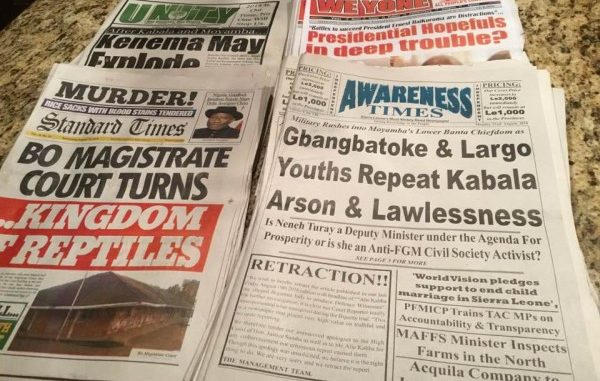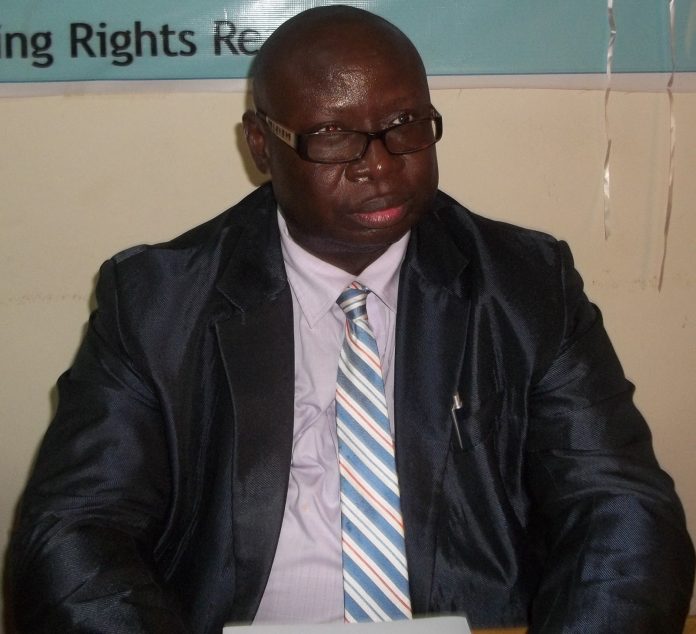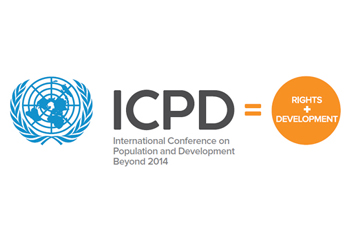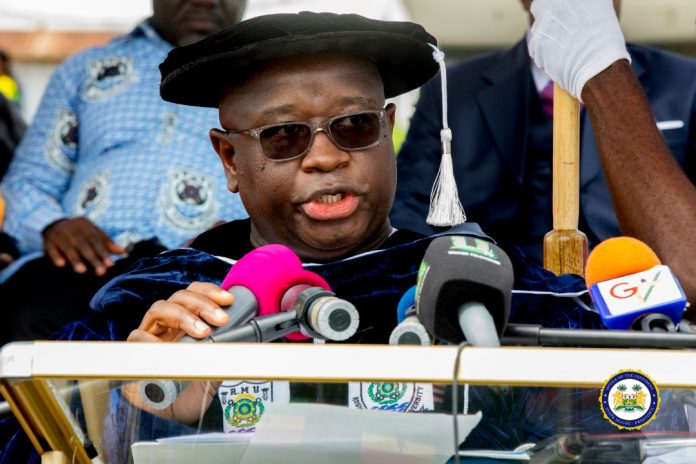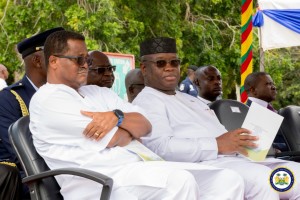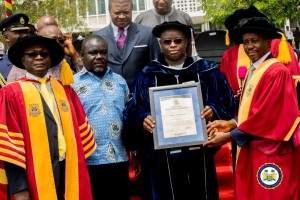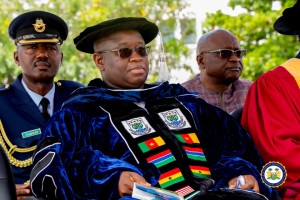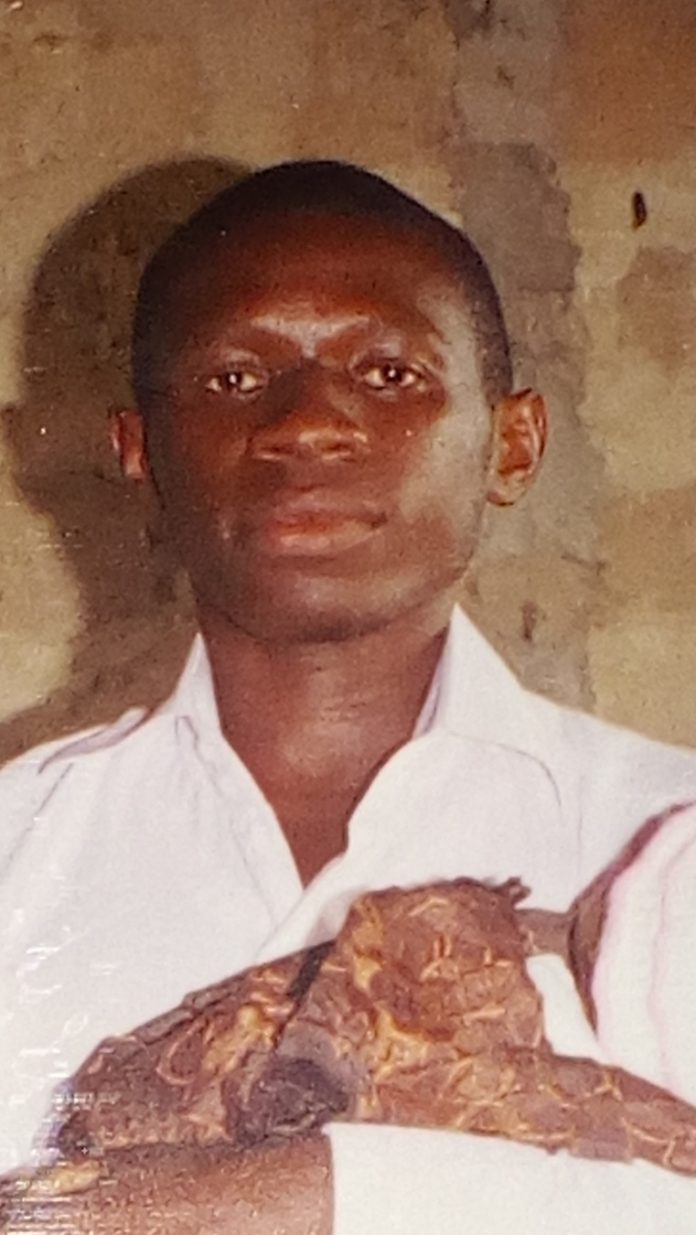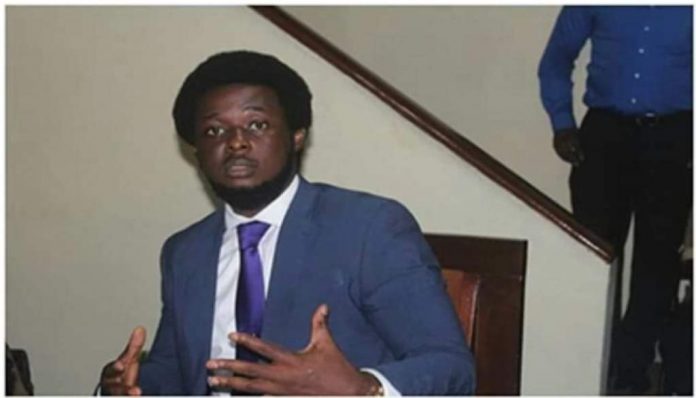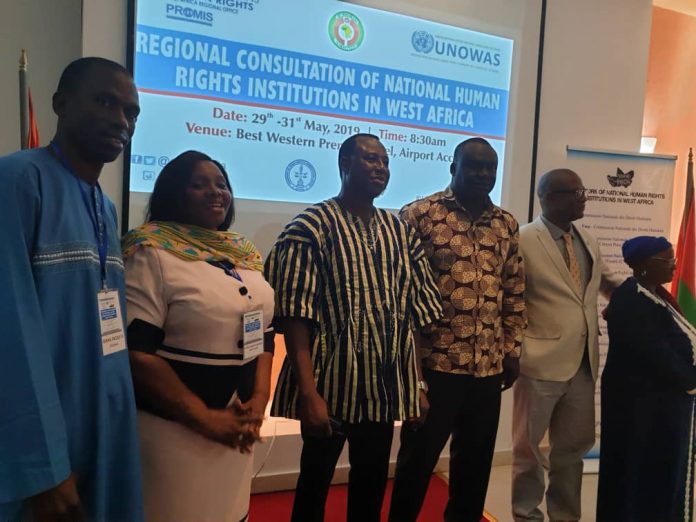The Commissioner of the Anti-Corruption Commission, Francis Ben Kaifala, was part of participants present at the 1st African Anti-Corruption Forum in Sharm El Sheikh where he delivered a very incisive and comprehensive speech which touched on sensitive thematic aspects bordering on what should be done to combat graft in Africa. Below is Ben Kaifala’s speech that left a deafening applause in its wake.
He said, I bring you greetings from Sierra Leone; a country that that epitomizes the full brunt of decades of corruption; but is now more determined than ever to fight corruption under the leadership of, His Excellency, President Rtd. Brig. Julius Maada Bio, whose roadmap to victory against corruption, and economic development blueprint are predicated on the pillars of conscientious anti-corruption reform and campaign.
He added that Corruption, mostly defined as the abuse of public office for private gain, has long been a concern for many countries around the world; more so in Africa. By its very nature, corruption can undermine the efforts of Governments to bring prosperity to their countries and promote violent conflicts, poverty, and underdevelopment, in many countries, and for too many decades.
He went on to state that this, in very many situations, including Sierra Leone, led to the breakdown of law and order, thereby lowering the GDP of countries, with poor States particularly suffering. Dreher and Herzfeld (2005) estimate that an increase in corruption by about one point reduces GDP growth by 0.13 percentage points; and GDP per capita by US$425. Evidently, corruption damages the economy of States, its political system, processes and institutions.
He added that the socio-economic and political cost of corruption in Africa is tremendous. The Control Risk Group estimated in 2011 that developing countries lost close to US$1 trillion to fraud, corruption and shady business transactions
He maintained that according to the Mo Ibrahim Foundation, corruption costs Africa over US$148 billion per annum – ‘equivalent to 50% of tax revenue and 25% of African GDP.’ In addition, illicit financial flows – especially via multinational corporations and mostly through corrupt practices – continue to deprive countries of much-needed financial resources.
He explained that Anti-Corruption measures are critical elements to the operation of the Rule of Law. The lack of same always breeds bad international governance ratings and undermines opportunities for economic cooperation with international financial institutions, development agencies, and donor States, no matter the scores for other indicators.
However, he said that sadly, the spread of corruption has been unrelenting. According to the World Bank, corruption is pervasive across Africa and is having a disproportionate effect on the poor, with long-term consequences for development.
He went on to say that in the late ’90s, Western stakeholders became significantly more active in Africa’s fight against corruption. In 1996, former World Bank President, James Wolfensohn, and International Monetary Fund (IMF) Managing Director, Michel Camdessus announced that donor leverage would be used to eliminate corruption. This gave many anti-corruption campaigns a Western, rather than local, identity, which partly explains the failure of some commissions and anti-graft institutions.
Going forward, he said, this calls for a participatory evaluation of commissions/agencies, as well as an inclusive decision-making process. This is crucial if Africa is to grow and nurture its own ideas, processes and mechanisms to deal with the corruption.
He added that in many corruption perception surveys, Africa remains perceived as the most corrupt continent and correspondingly, the poorest and most underdeveloped. Hence, addressing the problem of corruption in a strategic and comprehensive way is of paramount importance as a development priority for Africa.
He added that successful national anti-graft campaign amounts to remarkable transformation of countries like Singapore and Malaysia from little more than fishing villages in the 1960s to industrial metropolis and economic gateways to the Asia-Pacific sub-region today. We can say same for Botswana, The Seychelles, Rwanda, etc.
The fight against corruption is the proximate causal factors that will incentivize human agency, and enable ordinary Africans to reach their full economic and human potentials.
Sustain the resources of the continent to serve the goals of sustainable development.
Almost everywhere in Africa, corruption continues to be the biggest inhibitor of development and growth: In Sierra Leone, Nigeria, Guinea, and Liberia, corruption continues to negatively hamper efforts aimed at promoting democratic governance. In South Africa, Zimbabwe, Zambia, Uganda, and Malawi, corruption continues to undermine socio-economic transformation; In Nigeria, Somalia, Central African Republic, Cameroon, Tunisia, Egypt, Libya, Chad, Mali, and the DRC, corruption continues to undermine the peace and security of our people.
From Gabon in the West to Kenya in the East, corruption continues to degrade Africa; from Uganda in the East to Senegal in the West, corruption, and its effects, continues to promote conflicts and sow the seeds for disunity and national discord.
The seriousness and complexities of the problem are aptly captured in the Africa Progress Report; otherwise known as “the Mbeki Report”. This High-powered Panel on Illicit Financial Flows from Africa revealed that Africa loses over US$50bn annually through illicit financial flows and tax evasion. This is far more than what Africa receives in either international aid, or foreign investment. I hope you noticed the distinct irony. The report also estimates Illicit Financial Flow from Africa between 1970 – 2008 at nearly $900 billion. That money is not simply disappearing into the wind like magic – it is mostly going into the pockets of individuals and groups, thereby depriving parents of food for their families, medicines for children, classrooms, and portable water for communities, etc.
The late Kofi Anan (RIP); succinctly captured this when he said: “While personal fortunes are consolidated by a corrupt few, the vast majority of Africa’s present and future generations are being deprived of the benefits of common resources that might otherwise deliver incomes, livelihoods and better nutrition. If these problems are not addressed, we are sowing the seeds of a bitter harvest.” He added that as part of that ‘bitter harvest,’ Africa imports $34bn worth of food. We have hungry stomachs everywhere walking on fertile soils, even though we have potentials to feed ourselves within five years if agricultural productivity is improved. We need an estimated US$50bn annually to do our roads, railways, and other public investment projects. So, if the leakages are properly plugged, we would not need aid and/or loans from our competitors to effectively deliver service to the public.
The Africa Progress Report also estimated that Africa losses about US$17bn annually from illegal logging; while fishing fleets flouting international conventions are costing West Africa alone $1.3bn annually. These costs are driven by corruption in most parts.
In a report titled “Western Africa’s Missing Fish,” Britain’s Overseas Development Institute, reported that Africa loses billions of Dollars because corrupt African state operatives enter into shady deals with foreign countries. The FAO even went further to reveal that the sale of fishing rights to foreign operatives netted Africa $US400m in 2014, but could in theory generate US$3.3bn if Africa exports its own catch instead.
He said that he believes, these revealing statistics are enough to help you all picture how we are complicit in undermining efforts aimed at attaining the Global Sustainable Development Goals; and Agenda 2063 – Africa’s 50-year developmental blueprint.
On a progressive note, however, as more and more African countries realize that their development will be stunted if they fail to root out corruption, a wind of change is blowing across Africa, and it is in the interest of well-meaning citizens to join in to help create a society where everyone has equal rights to public goods.
Many States have instituted accountability measures and created Anti-Corruption Agencies to ensure that resources trickle down to their people. Cape Verde, Mauritius, Rwanda, Botswana, etc. are among countries that occupy respectable positions in the Control of Corruption indexes. Similarly, the African Union Convention on Preventing and Combating Corruption has provided a continental backbone to the efforts of member states in our fight against corruption. Of course, many African States are also party to the United Nations Convention Against Corruption – A united front against corruption is getting more and more formidable.
Critical to providing authoritative responses to the questions from the objectives of this consultative conference, is the institution and propagation of proper and sustained state-of-the-art education on corruption; backed by an unflinching commitment by all to refuse, reject, and suppress corruption at all levels; and in all jurisdictions of the continent.
Such education should be well targeted for the future of the continent. Africa is home to over 1.2 billion people; over 60% of its population falls under the age of 35. It should therefore target primary, secondary schools, colleges, and universities. Anti-corruption policy-making should improve youth capacity to unveil and oppose corruption. Relevant youth organizations should contribute to framing and implementing anti-graft policies. The overall objective is to achieve quality education that is aimed at effectively addressing corruption. Relevant sectors of society should be targeted to fully commit to fundamental ethical principles for public and professional life.
The AU Advisory Board on Corruption should take the leadership in defining the broad educational policy framework and setting the blueprint. To this end, it is highly important to develop appropriate strategies to raise awareness and understanding of the undermining effects of corruption; and at the same time, build countries’ capacities to stand up against it.
The evidence is glaring! Africa loses too much to corruption; sustained and perpetuated by bad governance, lack of accountability, and transparency; a staple for Africa. Resources meant for the people of Africa, but stolen and pocketed by corrupt actors, would have gone a long way to reduce infant mortality, maternal mortality, infections like malaria, cholera, among others; and the provision of vaccines for deadly outbreaks like Ebola.
Despite the potentials in our human and natural resources, the poverty rate in Africa is alarming. The irony of Africa is best illustrated in the axion “poverty amongst the plenty”; the richest, yet the poorest continent. Various studies have supported the position that if we seriously maximize our revenue mobilization; utilize our resources judiciously by negating corruption and corrupt practices of all kinds; it would be extreme for Africa to need foreign loans and donations.
We can build our own schools; equip our own hospitals, with the best brains, best equipment, and medicines available without waiting for China or begging the West. We can transform Africa into the paradise it truly ought to be. Now is the time to make that positive difference. I call on all of us to push for that difference. Let us make it happen. Where else can victory be harvested; if not from us? We have to make it happen. The positive difference Africa has been yearning for can be realized through us.

